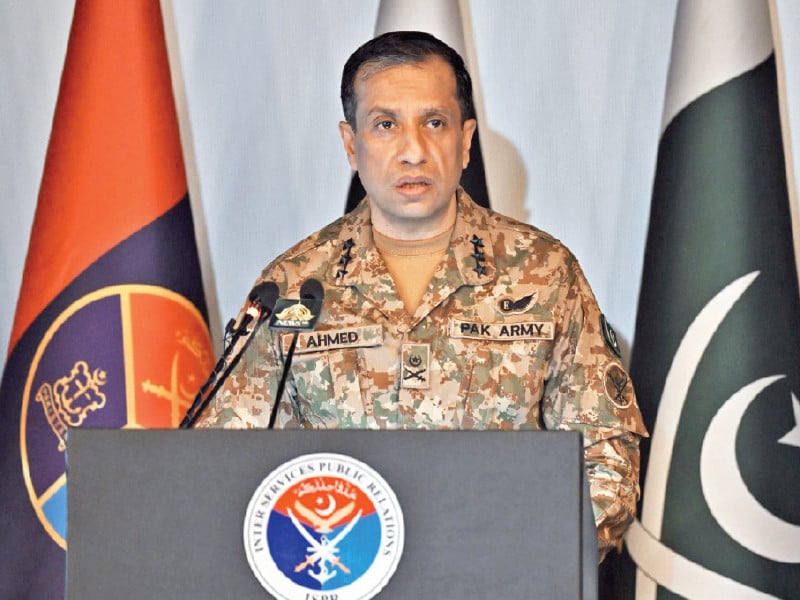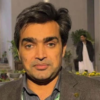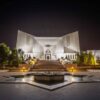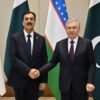- The Foreign Office spokesperson strongly rejected the remarks issued by the Indian Defense Minister and Army Chief.
Rawalpindi: The Pakistani military on Wednesday reacted strongly to the Indian army chief calling Pakistan a “hub of terrorism”, saying that “instead of trying to destroy the non-existent infrastructure of terrorism in Pakistan, self-deception is It would be wise not to suffer.”
In a strongly worded response on Wednesday, the Pakistani military said: “The Indian Army Chief’s designation of Pakistan as a hub of terrorism is not only counterfactual but a futile exercise in beating the dead horse of India’s default position. “Pakistan is a classic case of extreme duplicity for the local response to state-sponsored brutality.”
The Inter-Services Public Relations (ISPR) statement came in response to Indian Army Chief General Upendra Dwivedi’s remarks during a press conference ahead of India’s Army Day on Monday. General Dwivedi claimed that by 2024 “60 percent of the terrorists eliminated” in Indian-occupied Kashmir (IoK) were allegedly of Pakistani origin.
According to the Press Trust of India, General Dwivedi further alleged that “80 percent of the remaining fighters in the IOK were of Pakistani origin”.
The ISPR statement said the remarks were intended to divert the world’s attention from “India’s brutality in India’s illegally occupied Jammu and Kashmir (IIOJK), internal oppression of minorities and India’s international oppression”. are being done in an effort.
“The General officer personally oversaw the brutal repression of Kashmiris during his first tenure at LLOJK. Such politically motivated and false statements reflect the extreme politicization of the Indian Army.
The statement added that the world is witnessing India’s “conclave of hate speech inciting genocide against Muslims”, adding that the international community “has condemned the international massacre of innocent civilians by India and Indian security forces”. It is not oblivious to the repressive use of force against Kashmiris and serious violations of human rights against Kashmiris.
“Such repression has strengthened the resolve of Kashmiris for their right to self-determination, enshrined in UN Security Council resolutions,” it said.
“Instead of trying to convince a non-existent terror infrastructure in Pakistan, it would be wise not to indulge in self-delusion and appreciate the ground reality,” ISPR said.
Referring to the 2016 arrest of Indian spy agent Kulbhushan Yadav, who confessed to inciting terrorism in Balochistan and Karachi, the army said: “It is a sad fact that a senior serving Indian Army officer in Pakistan’s custody I have been caught red-handed organizing acts of terror against Pakistan. It seems that innocent civilians have been conveniently ignored by the general.
Pakistan takes strong exception to such baseless and baseless statements.
The statement concluded by saying that Pakistan “sympathizes with the victims of Indian Army brutality”.
“It is hoped that principles of citizenship, professionalism and state-to-state conduct will guide the conduct of Indian Army leadership rather than being swayed by political expediency.”
Baseless accusations, baseless claims: FO
Also, the Foreign Office (FO) today issued a statement saying that Pakistan “strongly rejects” the remarks issued by India’s Defense Minister and Chief of Army Staff on Monday and Tuesday respectively.
Indian Defense Minister Rajnath Singh said on Tuesday that India must “dismantle Pakistan’s terror infrastructure” in Azad Jammu and Kashmir (AJK), Hindustan Times reported. Speaking at the Army Day function in Akhnoor, Singh had said that the IoK was “incomplete” without Azad Jammu and Kashmir, calling it the “crown jewel of India”.
The minister made these remarks in response to Azad Jammu and Kashmir Prime Minister Chaudhry Anwar-ul-Haq, who last week said his government would “redirect all available resources to expel Indian forces from Occupied Kashmir”. .
The FO stressed that the IoK is an “internationally recognized disputed territory, the final status of which is to be determined in accordance with the relevant resolutions of the United Nations Security Council (UNSC) and the aspirations of the Kashmiri people”. .
The FO asserted that in this context, India has no legal or moral basis to make fictitious claims to the territories of Azad Jammu and Kashmir and Gilgit-Baltistan.
It added, “Such rhetoric by the Indian leadership cannot divert international attention from the grave human rights violations and repressive measures in the IIOJK,” noting that India’s actions “are a disservice to the Kashmiri people.” suppress their legitimate and just struggle for self-determination”.
“Pakistan also emphasizes that provocative statements of this nature are detrimental to regional peace and stability,” the FO statement said.
It highlighted the issue of extraterritorial killings – including in Pakistan – which, according to several reports by international media outlets, were carried out on behalf of the Indian government.
“Instead of making baseless accusations against others, India should examine itself and its documented involvement in targeted killings, acts of sabotage and state-sponsored terrorist plots in foreign territories,” the FO said. It should be remedied.”












